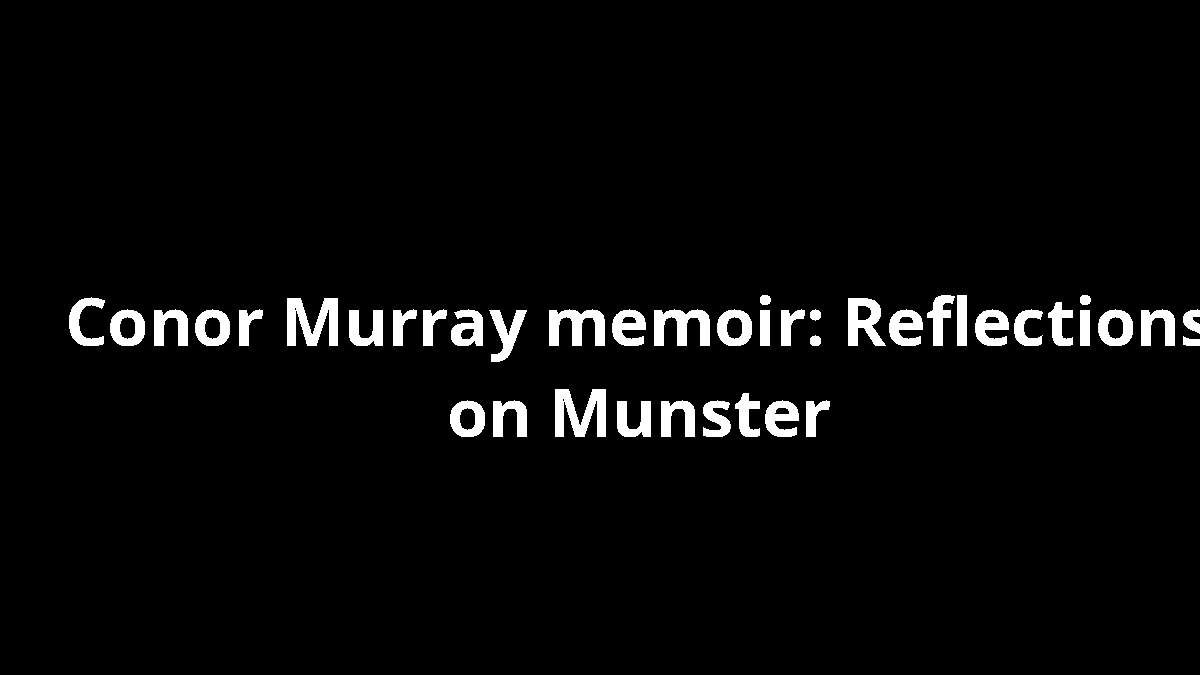Cloud Nine: Conor Murray’s candid reflection on Munster’s decline
Within the Conor Murray memoir, the roots of Munster’s identity feel clear and complex. The Conor Murray memoir threads together discipline, training rituals, and the quiet leadership that defined a long era in Irish rugby. In the Conor Murray memoir, readers glimpse a captain who steered through storms, not by shouting for attention but by setting standards that lasted beyond a single season. The Conor Murray memoir offers both pride and critique, a balanced lens on what happened in Irish rugby’s evolving landscape as Munster navigated upheaval, coaching changes, and the pressures of touring. The Conor Murray memoir frames how a club culture can endure, adapt, and face the future with honesty, humility, and the stubborn will to compete. BBC Sport Rugby
Origins of a captain
Munster’s decline: context and nuance
Leadership that outlived a season
What the book asks of fans and critics
In the second part of Cloud Nine’s discussion, the memoir extends beyond glossy recall. It asks readers to judge leadership through the lens of endurance—how Munster trained, recruited, and planned for seasons that did not always align with domestic trophies. The phrases and anecdotes in the Conor Murray memoir connect the dressing room to the boardroom, showing how decisions ripple through the squad, the province, and the national team. The narrative emphasizes accountability—for players, coaches, and administrators—without sacrificing the pride of a province that helped shape Irish rugby’s identity. For additional context on strategic shifts in professional rugby, see the insights from World Rugby.
Meanwhile, fans can compare perspectives across outlets like World Rugby and BBC analyses to gauge how a province negotiates upheaval while preserving its heritage.
The quiet captain speaks: Murray’s memoir ‘Cloud Nine: My Life in Rugby’
In this section, the authorial voice shifts from personal recollection to outward perspective. The Conor Murray memoir is less a victory parade and more a ledger of habits—training routines, recovery protocols, and the quiet gravity of selection decisions. The line between player and leader blurs as the book invites scrutiny of Munster’s administrative choices and the way performance is managed across generations. The memoir’s candid tone reflects the careful balance that Murray sought between sponsorship of the sport and the duty to teammates. World Rugby The narrative porosity—between memory and critique—helps readers understand how a club maintains identity when faces historic winds of change.
Cloud Nine as title and claim
Shared authorship with Tommy Conlon
Memory and accountability
The Cloud Nine era is shown as a period of both celebration and sober reflection. The Conor Murray memoir uses the title to mark a peak moment, then tracks how the flame steadies as the sport evolves. The two voices, in conversation with each other, map a path from champions’ halls to retirement’s quiet corridors, offering readers a template for evaluating longevity against context.
Inside Munster’s twilight years: a player’s perspective
The twilight years of a rugby project are never only about results; they reveal the mental sociology of a dressing room. In the Conor Murray memoir, we see how veterans become anchors for younger players and how transitions—coaches, captains, and systems—shape careers. The memoir presents Munster’s experience as a microcosm of Irish rugby’s broader challenges, including funding, facilities, and the shifting fan relationship to the provincial brand. The piece weaves in perspectives from teammates and staff, acknowledging both the human costs and the quiet triumphs of perseverance. For readers seeking a comparative lens, the report draws on trusted rugby outlets like BBC Sport Rugby and World Rugby to situate Munster within a global game.
Twilight epochs and roster churn
When rosters turn over, the challenge is maintaining cohesion and identity. The Conor Murray memoir examines how lines of communication stay open and how players adapt to new roles, while still honoring the province’s history.
Team dynamics and decision-making
Within a changing leadership group, decisions about selection, strategy, and development are framed as shared responsibility. The Conor Murray memoir underscores that what endures is not a single star but a culture of excellence.
Authorship and insight: Conor Murray with Tommy Conlon
Authorship in Cloud Nine is about more than memory; it is a thoughtful collaboration that tests recollection against records and interpretation. The Conor Murray memoir with Tommy Conlon blends athlete insight with narrative craft, producing a credible account that invites scrutiny from fans, historians, and analysts. The book becomes a resource for anyone studying how elite rugby players articulate the meaning of achievement, failure, and transition. The two voices argue with empathy and rigor, offering readers an example of how to tell a career honestly, without surrendering nuance or respect for teammates. The collaboration is also a case study in co-writing under the demands of a public profile.
Memory with accountability
The authorship process foregrounds accountability, reminding readers that lived experience must be tested against evidence and context. The Conor Murray memoir demonstrates that memory can be a guide without becoming a souvenir, and it suggests pathways for future rugby writers to balance affection with critique.
Retirement, memory, and the state of Irish rugby
As Murray steps back from frontline rugby, the discussion expands to what a career can contribute to a national sport over the long arc of time. The Conor Murray memoir contributes to the ongoing discussion about Irish rugby’s identity, governance, and the health of the provincial system. The narrative emphasizes that retirement is not an ending but a transition into analysis, mentorship, and historical record. The memoir’s reflections are complemented by contemporary voices across the sport, providing a fuller sense of how Irish rugby must adapt to changing talent pipelines, competition formats, and global markets. For more on governance and development, see World Rugby and independent rugby analysis outlets.
Legacy and the evolving game
What endures is the imprint of a leader who helped shape Munster’s story and, by extension, Irish rugby’s broader arc. The Conor Murray memoir joins a continuum of rugby literature, encouraging fans to engage with the sport’s past as a guide to its future.


